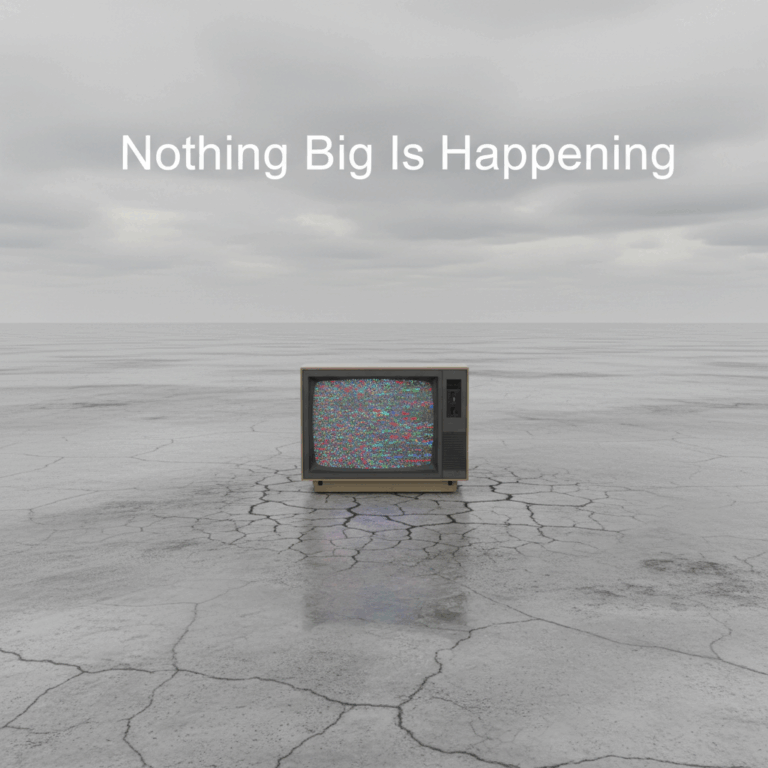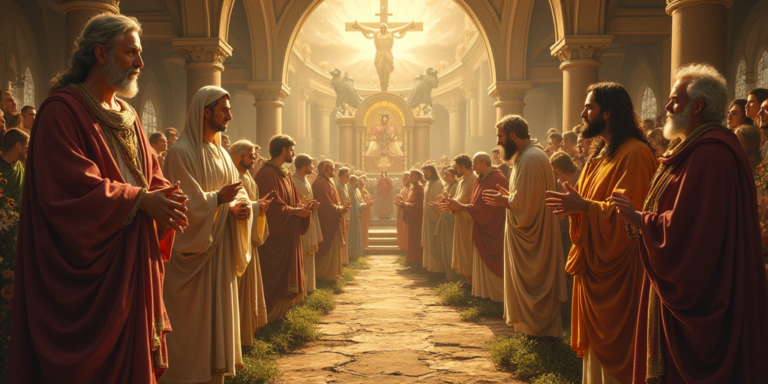The following passage is an excerpt from my new best-selling book, Reclaiming Reality: Restoring Humanity in the Age of AI. You can learn more about the book, listen to the podcast based on the book, and purchase the book at ReclaimingReality.com.
In an era where reality is manufactured, curated, and algorithmically manipulated, the greatest rebellion is to insist on what is real. Technology has blurred the lines between what is genuine and what is simulated, between what is natural and what is artificial. As AI-generated content fills digital spaces, deepfake videos mimic real people, and social interactions are mediated through screens, many are beginning to question whether reality itself is being eroded. For Christians, this presents a profound challenge. Christianity is a faith rooted in objective truth, in the reality of God’s creation, in the physical resurrection of Christ, and in the unchanging moral order established by God. Yet the modern world operates on a different premise. Increasingly, reality is being replaced by constructed narratives, designed to manipulate perception rather than reveal truth. News media no longer reports facts; it curates emotional responses. Social media platforms do not foster real human connection; they incentivize outrage, performance, and conformity. Even entertainment is shifting from human-created stories to AI-generated simulations, designed not to reflect reality but to control what people believe to be real.
The danger of this shift is that people become disconnected not only from objective truth but from their own existence. The more life is mediated through digital experiences, the less people engage with the tangible world. Many now prefer the curated perfection of Instagram over the imperfections of real relationships. They choose AI-generated music over live performance, virtual experiences over physical adventure, and online communities over the messy, demanding reality of human interaction. The result is a society that is increasingly lonely, anxious, and detached from what is real.
This is not a coincidence. The push toward a fully digital world benefits those who seek to control society. People who are detached from reality are easier to manipulate. If they are immersed in virtual spaces, they are less likely to challenge the systems that govern their physical lives. If they derive meaning from digital personas rather than their true identity, they are more susceptible to ideological programming. This is why the modern world is so eager to push people away from the real—because the real is independent, unpredictable, and often inconvenient to those who wish to impose a singular narrative.
But Christians are called to live in the real. Our faith is not a digital abstraction; it is grounded in the tangible, in the flesh-and-blood reality of Christ. The Incarnation itself is a rejection of the artificial, a declaration that truth is not a concept or a simulation, but a person—Jesus Christ, who entered into history, walked among us, suffered, died, and rose again in a real, physical body. The Christian life is not meant to be lived in detachment from the world, but in deep engagement with it.
To resist the artificial world being constructed around us, Christians must make a deliberate effort to reclaim the real in every area of life. This begins with relationships. In a world where digital interactions are replacing face-to-face conversation, we must prioritize real human connection. This means spending less time engaging with people through screens and more time in physical presence with family, friends, and church communities. It means choosing to be fully present in the moment rather than distracted by endless digital noise.
Reclaiming the real also means returning to tangible, meaningful work. In an economy increasingly driven by automation and remote digital labor, many people feel disconnected from the fruits of their own efforts. The satisfaction that comes from building, creating, and cultivating is being lost. Christians should seek to restore a sense of purpose in work by engaging in tasks that produce real value—whether through craftsmanship, agriculture, entrepreneurship, or creative endeavors that reflect the beauty of God’s creation.
Another critical area is worship. Many churches have embraced digital substitutes for physical gathering, replacing in-person community with livestreamed services, online small groups, and virtual prayer meetings. While technology can be useful in certain circumstances, it is no replacement for the real presence of the body of Christ. The Church is not meant to exist as a collection of disembodied online users; it is a living, breathing community that gathers, sings, prays, and takes communion together. The more Christians allow digital experiences to replace the reality of worship, the weaker the Church becomes. We must have the discernment to create a proper and ordered balance.
The real must also be reclaimed in the realm of truth itself. The modern world thrives on deception—shifting narratives, subjective morality, and AI-generated information that distorts reality. Christians must be committed to seeking truth, even when it is uncomfortable. This means reading Scripture with an unfiltered heart, refusing to be shaped by ideological trends, and being willing to stand against falsehood even when it is unpopular. It means recognizing that truth is not created by algorithms or mass consensus but is revealed by God and unchanging throughout time.
Living in the real also requires an appreciation for the natural world. In an age where people spend the majority of their lives indoors, in front of screens, disconnected from nature, it is easy to forget that God’s creation is a source of joy, beauty, and wisdom. There is something profoundly grounding about walking through a forest, tending a garden, or watching a sunrise that no digital experience can replicate. Christians should make an intentional effort to spend time in the real world, appreciating and stewarding the creation God has given us.
The battle between the real and the artificial is a spiritual one. The enemy seeks to distort reality, to lead people into illusion and deception. But God is the author of truth, and those who seek Him will always find what is real. The more we immerse ourselves in His presence, in His Word, and in His creation, the less we will be swayed by the artificial world being constructed around us. As the world moves further into the digital age, the temptation will be to embrace convenience at the expense of authenticity. But Christians must resist. We must build lives that are rooted in what is true, what is tangible, and what is eternal. The real will always outlast the artificial, because the real is founded in God Himself. And in the end, it is only what is real that will remain.
Like what you’ve read? Buy the book here.





